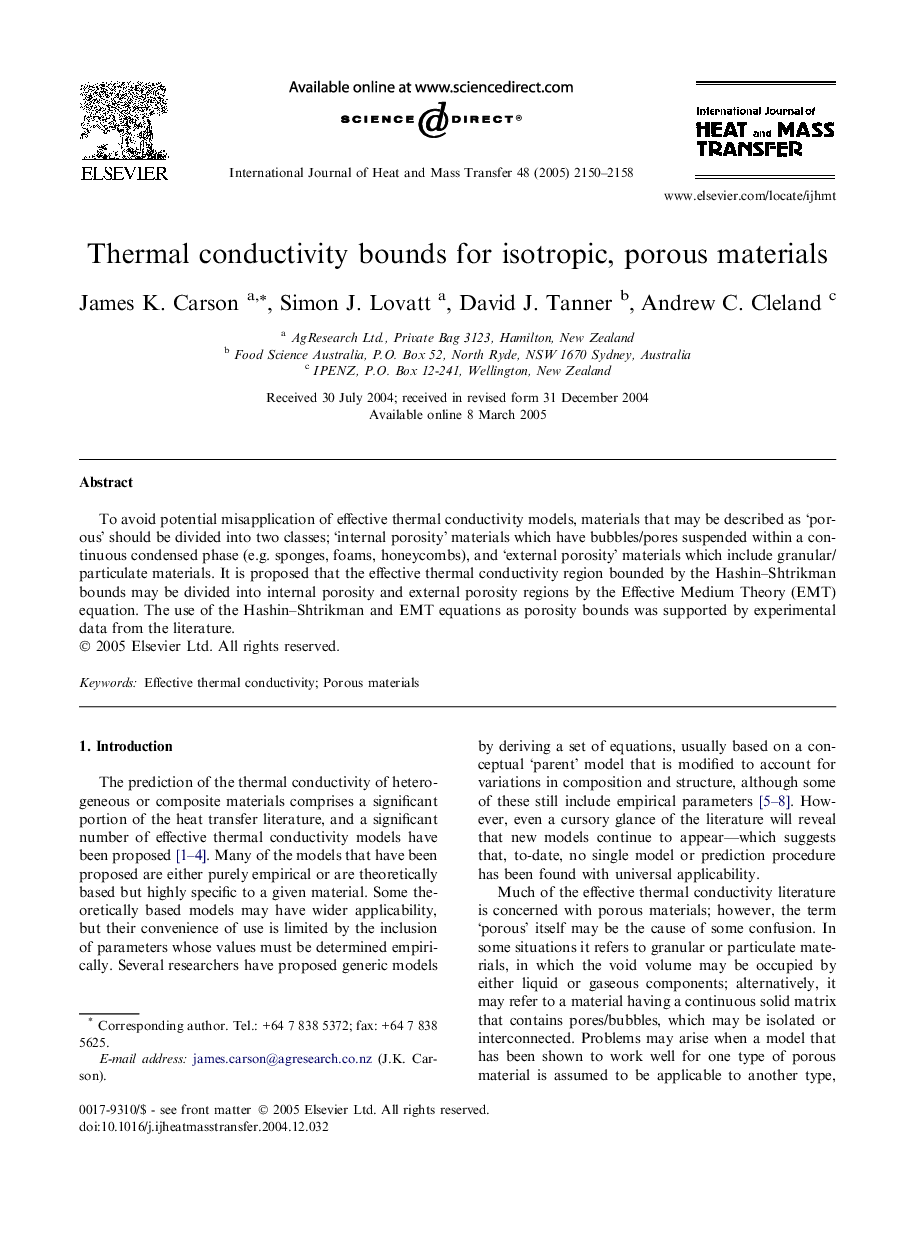| Article ID | Journal | Published Year | Pages | File Type |
|---|---|---|---|---|
| 663658 | International Journal of Heat and Mass Transfer | 2005 | 9 Pages |
Abstract
To avoid potential misapplication of effective thermal conductivity models, materials that may be described as ‘porous’ should be divided into two classes; ‘internal porosity’ materials which have bubbles/pores suspended within a continuous condensed phase (e.g. sponges, foams, honeycombs), and ‘external porosity’ materials which include granular/particulate materials. It is proposed that the effective thermal conductivity region bounded by the Hashin–Shtrikman bounds may be divided into internal porosity and external porosity regions by the Effective Medium Theory (EMT) equation. The use of the Hashin–Shtrikman and EMT equations as porosity bounds was supported by experimental data from the literature.
Related Topics
Physical Sciences and Engineering
Chemical Engineering
Fluid Flow and Transfer Processes
Authors
James K. Carson, Simon J. Lovatt, David J. Tanner, Andrew C. Cleland,
